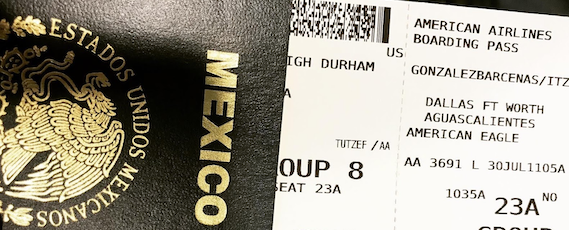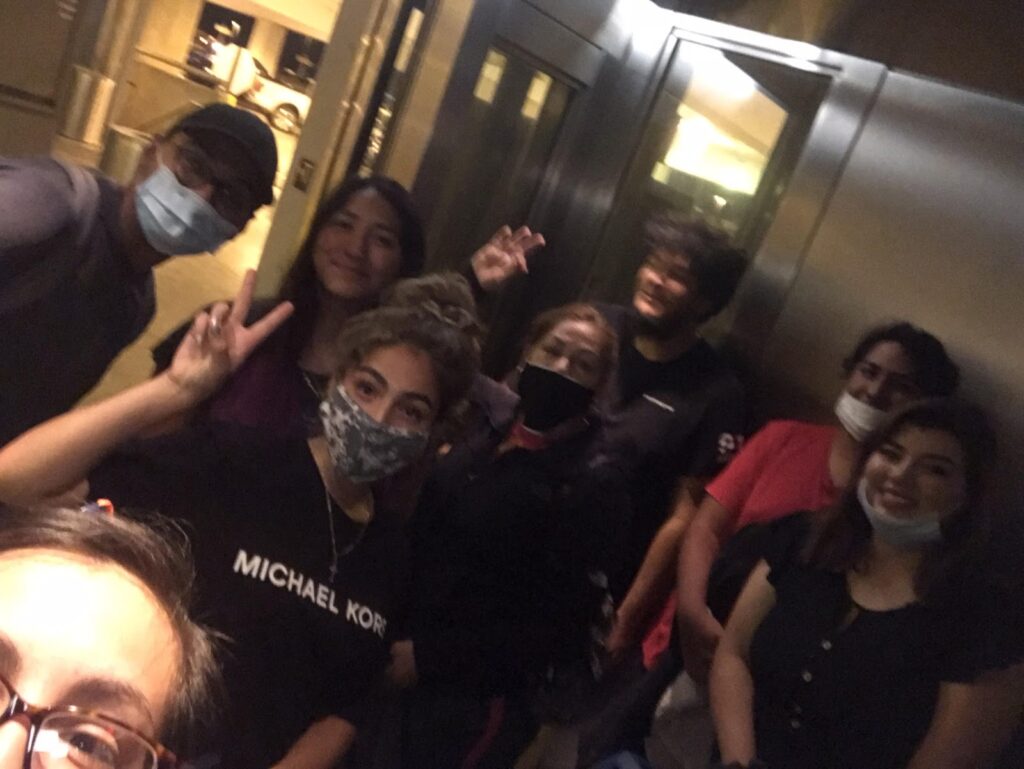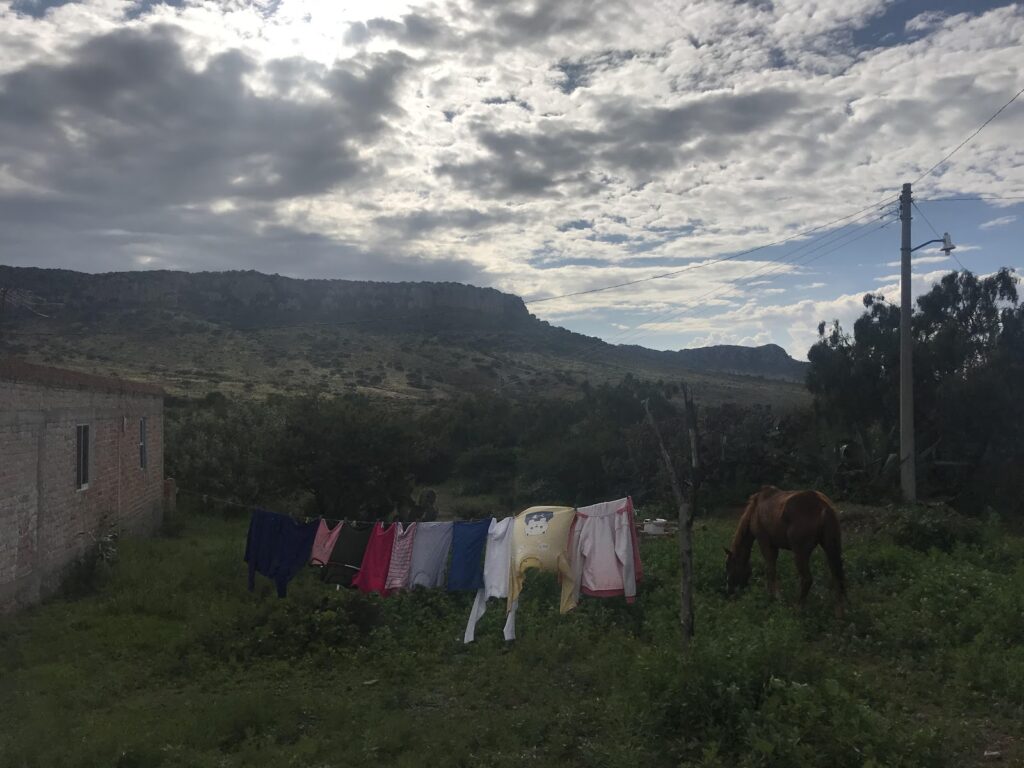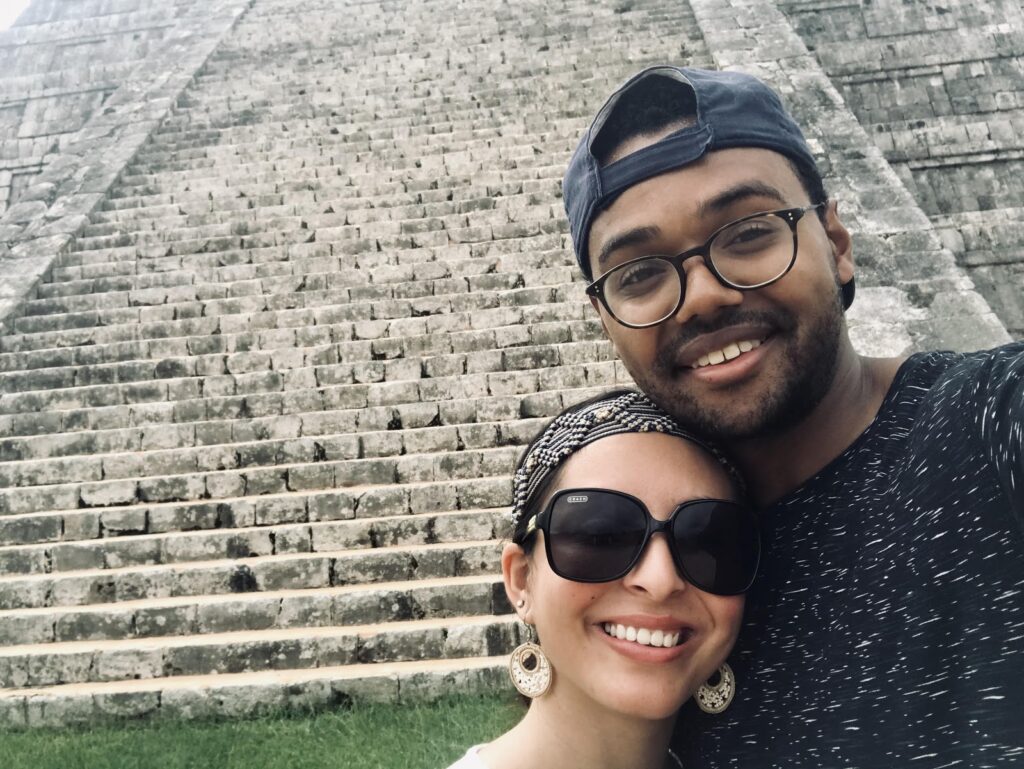6 min read

Feature: On Leaving the United States: A Perspective
It’s now been seven months since I made the life-altering decision to leave the United States. Honestly, there are still some days where it hasn’t fully sunk in. I’m still processing the plethora of emotions. As someone who lived as an undocumented, then DACAmented immigrant in the U.S., this was not something I took lightly as it would mean I would not see my family and friends for an undetermined amount of time.
People have their own reasons to stay or leave places. For me, I couldn’t fully decide. I kept going back and forth even when our tickets were booked and our bags were packed. My partner, Brice, and I made a “pros vs. cons” list to decide since there were so many factors to consider.
I always dreamed about the day when I would leave, but I never imagined it would be before there was a pathway to citizenship. I guess I came to the decision that I had other dreams I wanted to pursue more.
It was also the right time for me to leave. For starters, I finished my undergraduate studies and gained valuable internship and work experiences. Second, I was already accepted into a wonderful Master’s program at an internationally recognized school, Sciences Po’s Paris School of International Affairs. Third, I could not wait to see whether Trump would be reelected.
Brice and I were both immigrants with rocky situations in the United States. We were constantly being pushed apart in a million directions. As a French citizen on his final extension of a non immigrant J-1 visa, Brice could no longer renew it. His options were limited to an H1B visa or Green Card, which were virtually impossible with COVID-19. I had DACA, which did not guarantee my stay either. Once the Supreme Court made the decision that the Trump administration had not legally terminated the DACA program, it was a small win, but it still made me uneasy to think that the administration could strategize further and end it legally. All of this in the midst of a global health pandemic was too much. My mental health waned. I felt so trapped. I needed to get out.
The days leading up to our departure became harder. The day before, we had a small celebration for my brother and cousin’s birthdays. It was a beautiful last day. That night, we decided who would go to the airport. We finished packing. We went on a final late McDonald’s run.
The 45 minute drive to the international airport at RDU was almost silent. Whether it was because it was so early or because we were all sad, no one said a word. I stared at the moon wondering if it would look the same across the border.

They waited with us until we passed TSA security. When I hugged everyone goodbye, it felt so final and real; all of the feelings that were welled up inside exploded. I could not stop crying. I cried through security, sitting at our gate, on the flight to Dallas and at the Dallas airport. Brice kept checking in and reminding me that we could take a flight back to North Carolina from Dallas. It was not too late. I considered it, but knew in my heart that it was time for me to go. I had taken many flights before this one, but this specific takeoff was so different from all the others— liberating yet so painful.
Landing in Aguascalientes was a whole set of other emotions: excitement, fear, curiosity.

Originally, we were only going to pass through Mexico on our way to France. We decided to defer my program and spend a year in Mexico. It’s been an interesting experience. There are times when I feel like I came back home, but other times I feel like I left the only place that’s been home. I have always said I’ve lived in a constant limbo, but that’s never felt more true. I left a big part of myself back in the U.S. and gained a whole new piece of myself in Mexico. Frankly, a small part of me held onto a sliver of hope that I would feel like I truly belonged in Mexico. That hasn’t always been the case.
For example, as a married Mexican woman in rural Mexico, there are a lot of assumptions that are made about who I am and my “role as a wife.” It’s been hard to navigate traditional societal pressures and expectations. I often feel misunderstood. I am my own person, but I feel far from it here sometimes. It’s as though my sole purpose of existence is supposed to tend to my husband. As an independent woman, this clashes with my thinking on a daily basis.
Furthermore, as soon as I open my mouth, they can tell I’m not “from here,” which is ironic considering that I wasn’t “from” the United States, either. Brice and I went to Mazatlán, Sinaloa with my cousin and his wife. We were chatting with a local there while waiting for our ride. The man asked us the dreaded question: “where are you all from?” Everyone answered. When it was my turn, my cousin saw my hesitation and quickly jumped to my rescue. He said, “Mi prima es como la India Maria, ni de aqui ni de alla – My cousin is like the “India Maria,” (a fictional indigenous woman character) neither from here nor there.” Grateful to not have to explain myself any further, I smiled and nodded.

Some days I feel like leaving was the best thing I could have done, on others I feel like I made a big, irreversible mistake. I’m not sure if it was the “right” decision. But, honestly, no decision can ever be right, they just lead to different paths. The only things I know for sure are that
- I find myself less lost and confused as the days pass;
- I am grateful to have stripped myself of the labels that plagued my everyday existence in the United States — “dreamer,” “DACAmented,” “immigrant,” and worst of all, “illegal,” and
- life is a continuous journey of finding yourself and I’m doing just that.